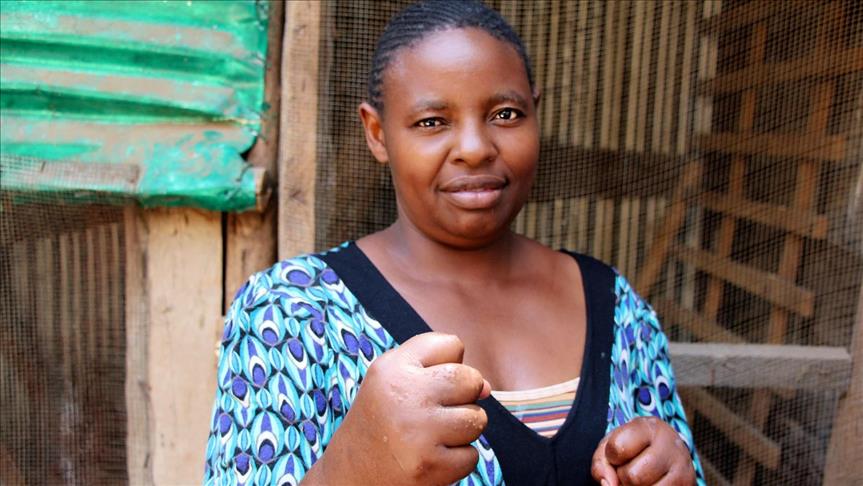
You have reached the right place if your goal is to learn self-defense. There are many self defense classes offered in the city. They cover everything from Krav Maga and MMA to Gracie Barra's Women's Program. This article will outline the benefits of each class, as well as give you tips on how to find the right class.
Xtreme Krav Maga & Fitness – Midtown
Krav Maga is a practical and instinctive system of self-defense. Its instructors teach students how they should react to dangerous situations. They also focus on common sense, setting boundaries and focusing on common sense. The school encourages tolerance and respect without prejudice or bias. Kickboxing is a form of self defense geared towards children.
Xtreme Krav Maga combines kickboxing and martial arts to teach self-defense techniques. The instructors are well-versed in self defense techniques and can adapt the techniques for various injuries. They also understand physiology and translate their knowledge into real-life situations. They offer the training you need in order to protect yourself, your family members and friends. All ages and skill levels are welcome to take the classes.
Gracie Barra Women's Program
If you're a female looking to learn self defense, the Gracie Barra Women's Program has free seminars available for teens and ladies in St. Louis. These seminars, which are taught by Carlos Gracie Jr. black belt instructor, are a great way for you to boost your self-esteem and confidence. You can learn how to defend yourself from an attacker using basic techniques and apply them in a real-world setting.

The Gracie Barra Women's Program offers a unique combination of self-defense curriculum for women that includes realistic attack and escape situations. Through realistic attack scenarios, students will learn how they can defend themselves and improve their fitness. Pink Team members also have the opportunity to meet up in teams, which helps them build strong bonds. These classes are fun and can help you improve your fitness routine.
St. Louis Bujinkan Dojo
If you're interested in learning about the ancient Japanese art of self-defense, consider enrolling in a self defense class at the St. Louis Bujinkan Dojo. This private school emphasizes non-competitive training. It also teaches ancient Japanese martial arts. They welcome adults, teens, and children from all ages to join their classes. Participants agree to take full responsibility for any injuries or illnesses they cause while learning martial arts. Martial arts is a contact sport that can prove to be extremely dangerous.
The St. Louis Bujinkan Dojo offers both youth and adult classes in martial arts. The Dojo is a center for mixed martial arts. This means you will learn striking as well as grappling skills. You can choose a class time that works for you. If you'd prefer, you can choose to take private lessons or join a group class. Contact the school for more information.
Self-defense classes with UMSL
Students at UMSL can receive self-defense tips from a local cop. The university's Police Department will assist students with safety tips and escape strategies. For the classes to be held at the UMSL Recreation & Wellness Center students must bring their Triton Card. Participants are required to follow UMSL policies in order to be safe. Many UMSL Students have earned certifications to teach self protection courses.

The University of Missouri-St. Louis, a public research university, has been in operation for almost 50 years. It is the third largest university in Missouri, conferring more than 3,000 degrees each year. It has an impressive selection of undergraduate programs and graduate programs. There are also two education-specialist degrees, and 17 doctoral programmes. It also boasts Missouri's only program for professional optometry. UMSL was founded in 1963 as the fourth campus of the University of Missouri System. It boasts over ten-thousand alumni. Seventy percent of them reside in the St. Louis metropolitan.
FAQ
What's a good routine for a daily workout?
Regular exercise is key to staying healthy. It doesn't make a difference what kind of activity you choose. As long as you do it often, it will be beneficial. Consistency is the key. It is important to stay consistent in order to get results.
Begin with a small amount of daily exercise (like walking). You can gradually increase the amount of exercise you do until you have 30 minutes each day. This could be running, biking, swimming or weight training.
It is important to exercise every day of the week. You should not miss any sessions unless there is a good reason.
Make sure to wear appropriate clothing and footwear for outdoor exercise. Weather conditions can also affect your ability and safety to exercise.
When you exercise, drink plenty of fluids. Avoid drinking alcohol during this time because it can cause dehydration. Avoid caffeine-rich drinks like coffee, tea, and coca. They can provide energy, but they also dehydrate.
After your first exercise, you may feel tired. Keep going with your workouts and you'll soon feel more energized.
What is a good 7-day workout schedule?
A seven-day exercise plan should include cardiovascular training (running/biking/swimming), strength exercises (using weight machines, free weights) and one flexibility/core program (yoga or Pilates). Each activity should be done at least once per week. Each session should last no more than 45 minutes.
Cardiovascular Exercises: Swimming, Cycling, Running
It is important to complete at least 60 minutes of cardio per week. Aim for 75 minutes per week to get the best results. Cardio exercises can be used to increase blood flow, stimulate muscle growth, and improve blood circulation.
Strength Training
While cardio exercises target the heart and lungs, strength training targets the muscles and bones. Strength training can help you burn calories even when you're not working out.
Flexibility & Core Workouts
You can strengthen your entire body by strengthening flexibility and core exercises. Both yoga and Pilates are excellent options.
Can I consume alcohol while working out?
Yes. Alcohol can increase energy expenditure, speed recovery time, and reduce soreness.
Alcohol also increases insulin sensitivity, making it easier to absorb glucose.
However, alcohol can lead to dehydration that can slow down your metabolism. It can also decrease testosterone production, which can affect muscle-building ability.
Women shouldn't consume alcohol before exercising. Women who drink heavily should wait at LEAST 24 hours before they start working out.
Nursing mothers should abstain from alcohol as much as they can.
Men should limit their intake to one drink per day.
What is butter good for?
Butter is one of the best sources of saturated fats. This type of fat contributes to healthy skin, hair, and stronger bones.
Butter also contains vitaminK, which prevents bleeding after cuts and bruises. Vitamin K is combined with vitamin C to prevent bruises.
Butter is also rich mineral, including calcium and phosphorous. These elements help to build stronger bones and teeth.
Butter has its limitations. Butter contains high levels of cholesterol. Some studies show that consuming too much cholesterol may increase the risk of developing cardiovascular disease.
Butter is also high-fat, which can contribute to obesity and increase cholesterol.
However, if you must have butter, try spreading it on bread rather than dipping it into soup or salad. Bread absorbs less oil than pasta and potatoes.
How can I lose weight by avoiding certain foods?
Avoid trans fats. Trans fats increase LDL (the harmful) cholesterol and lower HDL (the good).
Trans fats can be found in fast food, deep-fried foods, packaged baked goods, snack cake, and other processed foods.
These unhealthy fats are also known to cause inflammation and lead to heart disease as well as diabetes.
Avoid foods containing artificial sweeteners. Artificial sweeteners increase the risk of getting cancer.
These chemicals are found in many products, including soft drinks, candy bars, chewing gum, as well as candy bars. They can also be found in other foods like meat, poultry, and eggs.
Artificial sweeteners can be saccharin or cyclamate, sucralose, sorbitol or aspartame.
The American Heart Association recommends that these chemicals be avoided as they can damage DNA.
Is it true, that too much protein can cause kidney stones?
Protein helps maintain healthy bones and tissue. However, too much protein can result in calcium excretion through the urine. In turn, this can result in kidney stones.
It is important to remember that not all people get kidney stones from eating more than 2g protein per kilogram (2.2lbs) of body weight. Some people can eat high amounts of protein without getting kidney stones.
By watching how much sodium you consume, kidney stones can be prevented. Sodium regulates the body's water balance. Too much sodium can cause kidney stones.
If you have kidney stones, you can reduce your intake of protein. Protein accounts for about half the daily caloric requirement of most adults. Reduce your intake of protein and you will likely lose weight.
If you do decide to eat more protein, don't go overboard. Aim for less than 20% of total calories from protein.
How often should you exercise per week?
It depends on how much time you have available and what type of exercise you prefer. The general rule of thumb is to exercise aerobically 3 - 5 days per week. Don't go overboard. For maximum results, consistent exercise is key to getting the most out of your workouts.
Which exercises work best for you?
It really depends on the type of fitness goal you have. Some people choose to focus on endurance activities, such as swimming, cycling, and running. Some people enjoy lifting weights and using resistance bands. There are many types and styles of exercise available today. Select the one that best suits your needs.
Statistics
- By John Thompson Take a whopping 38% off a set of PowerBlock Pros. (menshealth.com)
- Are You One of the 20% of Guys (mh.co.za)
- Candidates and applicants must pass all four tests at 70% (minimum level) to graduate from Basic Deputy U.S. Marshal (BDUSM) Training. (usmarshals.gov)
- According to the American Academy of Dermatology (AAD), men over 50 are at a heightened risk of developing it. (healthline.com)
- Get free shipping and 25% off today. (healthline.com)
External Links
How To
What nutrients does a man require daily?
Daily nutrition is essential for men's healthy growth. Your body needs vitamins, minerals and nutrients as well as carbohydrates, proteins, fats, carbohydrate, fiber, and other essential components.
Males also require specific nutrients at certain times of the day. Your body makes hormones, antibodies and enzymes when you are asleep. You use protein to build muscles and repair damaged tissue when you wake up.
Your body stores extra energy as glycogen and breaks down fat at night. Your body requires fewer calories, but still needs enough nutrients. You can have a snack at night if you feel hungry.
When you work out, you need adequate levels of carbs and protein to fuel your muscles. You may feel sore muscles if you exercise hard.
To prevent this from happening, you need to consume carbs or protein within two hours. Your body will breakdown stored glycogen and provide you with glucose for energy.
In addition, you must consume protein immediately after completing your workouts. This prevents muscle tissue from being broken down while you are sleeping.
Lactic acid is produced by the body during periods of intense exercise. It is a form of lactic acid that builds up in the bloodstream. This causes fatigue. To avoid this, you should eat foods rich in carbohydrates, such as fruits and vegetables.
Carbohydrates are a good source of energy to help you recover from hard exercise.
Your diet may include lean meats like fish, eggs, milk cheese, yogurt or beans as well as lean proteins such as fish, eggs, egg yolks, cheese, yogurt, bean, peanuts and seeds.
All these foods are high-quality sources of protein. Protein promotes muscle growth and repairs damaged tissues. It also provides the amino acids your body needs to produce sex hormones and testosterone.
To maintain healthy skin, hair, and joints, you also need sufficient dietary fats. Healthy men require between 20% and 35% of total caloric intake from fat.
Fat is good for your heart and helps you fight cancer. It keeps your brain healthy and functioning well.
You can get most of the fat you need from vegetable oils like olive oil, sunflower oil, corn oil, soybean oil, peanut oil, and safflower oil.
These oils have high amounts of monounsaturated oil fatty acids, (MUFAs). MUFAs reduce cholesterol and inflammation. They protect your cells and prevent damage from free radicals.
Saturated oils (SFAs), found primarily in animal products such meats, dairy products and butter, are known to raise LDL ("bad") cholesterol. SFAs can increase LDL ("bad") cholesterol as well as triglycerides. They can also increase weight and reduce belly fat.
Polyunsaturated oils (PUFAs), are found in plant-based foods like nuts, seeds and vegetable oils. PUFAs help improve cardiovascular function, and lower inflammation. They can also control blood sugar levels and cholesterol.
Erectile dysfunction is common in men with low HDL ("good") cholesterol. A high intake of saturated fats leads to higher levels of bad cholesterol.
Men who eat lots of red meat or pork can develop prostate problems. This is because these foods contain high amounts of nitrates. If cooked at high temperatures, the nitrates become nitrosamines. These compounds can cause cancer.
Most processed meats have nitrites and harmful chemicals. These chemicals should be avoided.
The American Heart Association recommends eating no more than 2 servings of red meat per week. Instead, opt for poultry, fish, legumes and tofu as well as whole grains bread and cereals.